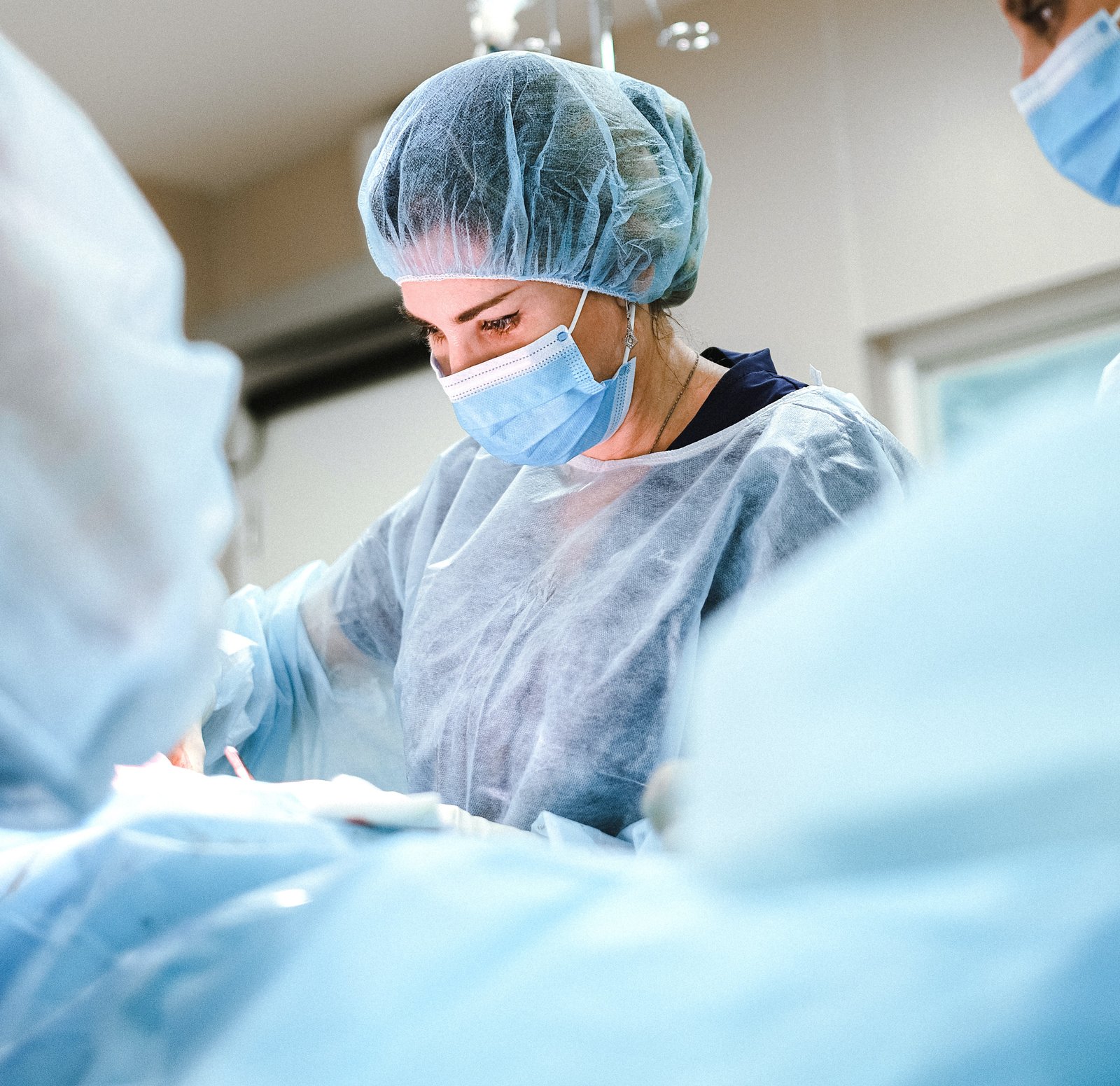
Knee surgery is a major medical procedure that can significantly strain the body. Recovery time can vary depending on the type of surgery, but it typically takes several weeks to months to fully recover. This can be challenging for patients and their loved ones, as limited mobility and discomfort can impact daily life. However, with the right strategies and guidance, knee surgery recovery time can be managed effectively. This guide explores the road to recovery after knee surgery, including tips for managing pain and discomfort, exercises to improve mobility, and lifestyle changes to support healing. Whether you’re preparing for knee surgery or recovering, this guide will provide you with the tools and resources you need to navigate this journey confidently and easily.
Understanding Knee Surgery and the Recovery Process
Knee surgery is a medical procedure that treats various conditions, including injuries, arthritis, and other degenerative diseases. The most common types of knee surgery include arthroscopy, partial knee replacement, and total knee replacement.
Arthroscopy is a minimally invasive procedure that involves making small incisions in the knee to insert a miniature camera and surgical tools. The surgeon can then repair or remove damaged tissue in the knee. Recovery time for arthroscopy is typically shorter than other types of knee surgery, with most patients able to resume normal activities within a few weeks.
Partial knee replacement involves replacing only the damaged portion of the knee joint with a prosthetic implant. Recovery time for partial knee replacement can vary, but most patients can resume normal activities within a few months.
Total knee replacement involves replacing the entire knee joint with a prosthetic implant. Recovery time for total knee replacement can be several months, with most patients able to resume normal activities within six months.
Regardless of the type of knee surgery, the recovery process can be challenging. Patients may experience pain, swelling, and limited mobility during the initial stages of recovery. However, patients can manage these symptoms and promote healing with proper care and guidance.
Types of Knee Surgeries and Their Recovery Times
As mentioned earlier, there are several types of knee surgeries. The recovery time for each surgery can vary depending on the patient’s age, overall health, and the extent of the surgery.
Arthroscopy is a minimally invasive procedure, and patients can usually return to normal activities within a few weeks. However, the knee may take up to six weeks to fully heal.
Partial knee replacement requires a longer recovery time than arthroscopy. Most patients can resume light activities within a few weeks, but it can take up to six months for the knee to fully heal.
Total knee replacement is the most invasive surgery and requires the longest recovery time. Patients may need to use a walker or crutches for several weeks after surgery and may not be able to return to normal activities for six months or more.
It’s important to discuss your surgery’s recovery time with your surgeon and follow their recommended care plan to ensure a successful recovery.
Preparing for Knee Surgery and Recovery
Preparing for knee surgery and recovery can help make the process smoother and less stressful. Here are some tips for preparing for knee surgery and recovery:
1. Talk to your surgeon about what to expect during the surgery and recovery.
2. Arrange for someone to help you with your daily activities after surgery.
3. Make any necessary modifications to your home to make it easier to move around.
4. Stock up on essentials like food, medication, and comfort.
5. Follow your surgeon’s pre-surgery instructions, such as fasting and stopping certain medications.
Patients can reduce stress and focus on their healing by preparing for surgery and recovery.
Managing Pain During Knee Surgery Recovery
Pain management is a crucial component of knee surgery recovery. Patients may experience pain and discomfort during the initial stages of recovery, but there are several ways to manage these symptoms:
1. Take pain medication as prescribed by your surgeon.
2. Apply ice to the knee to reduce swelling and pain.
3. Elevate the knee to reduce swelling and improve circulation.
4. To reduce stress and anxiety, Practice relaxation techniques, such as deep breathing or meditation.
It’s important to talk to your surgeon about pain management options and to follow their instructions to ensure a safe and effective recovery.
Exercises and Physical Therapy for Knee Surgery Recovery
Exercises and physical therapy are an essential part of knee surgery recovery. These activities can help improve mobility, reduce pain and swelling, and promote healing. Here are some exercises and physical therapy techniques that can be helpful during knee surgery recovery:
1. Range-of-motion exercises involve moving the knee joint to improve flexibility and mobility.
2. Strengthening exercises: These exercises focus on building strength in the muscles surrounding the knee joint to support healing.
3. Aquatic therapy: Water-based exercises can help reduce pressure on the knee joint while improving strength and mobility.
4. Massage therapy: Massage therapy can help reduce pain and improve circulation in the knee joint.
Working with a physical therapist to develop an exercise and physical therapy plan tailored to your specific recovery needs is important.
Diet and Nutrition During Knee Surgery Recovery
Diet and nutrition can play a crucial role in knee surgery recovery. A healthy, balanced diet can provide the nutrients needed for healing and promote overall health and well-being. Here are some tips for healthy eating during knee surgery recovery:
1. Eat various fruits and vegetables to get a range of vitamins and minerals.
2. Choose lean protein sources, such as chicken, fish, and beans, to support muscle healing.
3. Avoid processed foods and sugary drinks, increasing inflammation and slowing healing.
4. Stay hydrated by drinking plenty of water and avoiding alcohol and caffeine.
Patients can support their recovery and promote overall health by eating a healthy, balanced diet.
Returning to Daily Activities After Knee Surgery
Returning to daily activities after knee surgery can be a gradual process. Patients should follow their surgeon’s instructions and work with a physical therapist to ensure a safe and effective recovery. Here are some tips for returning to daily activities after knee surgery:
1. Start with light activities, such as walking or stretching, and gradually increase intensity.
2. Avoid high-impact activities like running or jumping until your surgeon clears.
3. Use assistive devices, such as crutches or a walker, as needed.
4. Take breaks and rest as needed to avoid overexertion.
By gradually returning to daily activities, patients can support their recovery and prevent further injury.
Common Complications and How to Avoid Them
While knee surgery is generally safe, there are some potential complications that patients should be aware of. These can include infection, blood clots, and implant failure. To reduce the risk of complications, patients should:
1. Follow their surgeon’s instructions for post-surgery care and recovery.
2. Watch for signs of infection, such as fever or increased pain and swelling.
3. Move regularly to reduce the risk of blood clots.
4. Report any complications or concerns to their surgeon immediately.
Patients can ensure a safe and successful recovery by being aware of potential complications and taking steps to prevent them.
Emotional Support During Knee Surgery Recovery
Knee surgery recovery can be a challenging time emotionally as well as physically. Patients may experience stress, anxiety, and depression during the recovery process. To cope with these emotions, patients should:
1. Seek support from friends and family.
2. Join a support group or online community for people going through similar experiences.
3. Practice stress-reduction techniques, such as meditation or deep breathing.
4. Talk to a mental health professional if needed.
By caring for their emotional well-being, patients can support their overall recovery and improve their quality of life.
Frequently Asked Questions
When can I return to work after knee surgery?
This will depend on the type of surgery and your job. If you have a desk job, you may be able to return to work in a few weeks. If your job requires physical labour, it may be several months. Always follow your surgeon's advice on returning to work.
How soon after surgery can I start physical therapy?
Typically, physical therapy starts as soon as possible after knee surgery, often within a day or two. However, the extent and type of therapy will depend on the surgery and your personal situation.
What are some complications that can affect recovery time?
Complications such as infection, blood clots, and issues with anesthesia can all prolong recovery time. Some people might also experience stiffness in the knee, or have ongoing knee pain.
Can I drive after my knee surgery?
You shouldn't drive until you are free of pain, can fully bear weight on your operated leg, and can bend your knee sufficiently to enter and sit in a car. This typically takes anywhere from a few weeks for minor surgeries, to 6 weeks or more for major procedures like a knee replacement.
How can I speed up recovery after knee surgery?
Following your doctor's instructions for care after surgery and adhering to the prescribed physical therapy regime can help speed up your recovery. Additionally, maintaining a healthy diet, quitting smoking if you're a smoker, and getting regular sleep can also aid in faster healing.
Will I need help at home during my recovery?
Yes, particularly in the first few days or weeks after surgery, depending on the extent of the operation. You may need assistance with cooking, cleaning, and other daily activities, as well as getting to and from physical therapy sessions.
Conclusion and Final Tips for a Successful Recovery
Knee surgery recovery can be challenging, but with the right strategies and guidance, patients can manage their symptoms and promote healing. Patients can support a successful recovery by understanding the different types of knee surgeries and recovery times, preparing for surgery and recovery, managing pain, participating in physical therapy, eating a healthy diet, and taking care of their emotional well-being. By following their surgeon’s instructions and seeking support, patients can confidently and easily navigate this journey.



